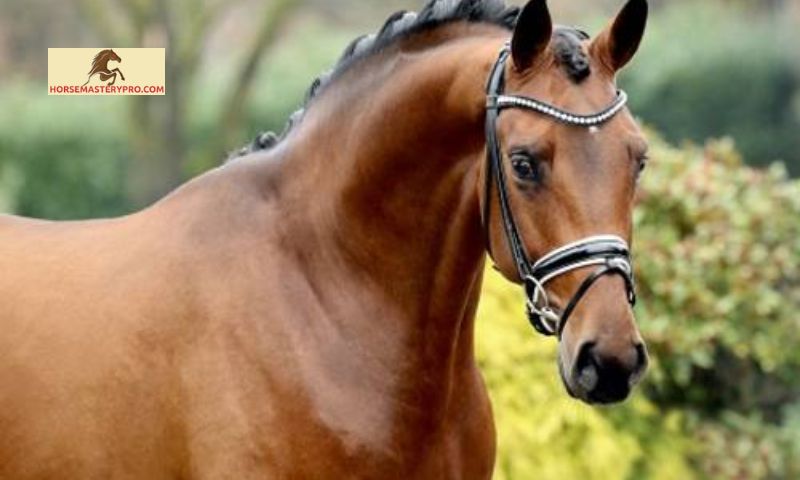Unleash the power of horse breeding values to enhance your equine breeding program. Discover how these values can revolutionize the genetic potential of your horses.
Welcome to Horsemasterypro.com, where we delve into the fascinating world of horse breeding values. Have you ever wondered what sets apart a champion racehorse or a top-notch sport horse? The answer lies in understanding and harnessing the power of horse breeding values. In this article, we’ll explore the importance of horse breeding values, define what they are, and provide an overview of what you can expect to learn throughout this enlightening piece.
A. Importance of Horse Breeding Values
When it comes to breeding horses, the goal is to produce offspring with superior qualities, whether it’s speed, agility, or temperament. Horse breeding values play a pivotal role in this endeavor as they help breeders make informed decisions to enhance desirable traits and eliminate potential weaknesses. By understanding the genetic potential of individual horses, breeders can optimize their breeding programs, leading to the development of exceptional equine athletes.
B. Definition of Horse Breeding Values
So, what exactly are horse breeding values? In essence, they are numerical estimates that quantify the genetic potential of a horse for specific traits. These values are derived from a combination of pedigree information, performance data, and genetic evaluations. By analyzing this data, experts can assign breeding values to horses, providing valuable insights into their potential to pass on desirable traits to their offspring.
C. Overview of the Article
Now that we understand the significance of horse breeding values and have a clear definition, let’s take a sneak peek into what lies ahead. In the upcoming sections, we’ll explore the factors that influence horse breeding values and delve into the genetic considerations that come into play during the breeding process. We’ll also discuss how these values aid in selecting breeding stock and the methods used to calculate them accurately.
Get ready to unravel the secrets of horse breeding values, as we journey through the world of genetics and discover how they can revolutionize the equine industry. So, let’s dive in and unlock the key to genetic excellence!
Understanding Horse Breeding Values

Breeding exceptional horses requires a deep understanding of the factors that influence horse breeding values. In this section, we will explore these factors, delve into the genetic considerations that play a pivotal role in horse breeding, and discuss the methods used to evaluate the performance of breeding horses.
A. Factors Affecting Horse Breeding Values
Various factors contribute to a horse’s breeding value and ultimately determine its potential to pass on desirable traits to future generations. These factors can include the horse’s pedigree, performance records, conformation, temperament, and even environmental influences. By carefully considering these factors, breeders can make informed decisions when selecting breeding stock and maximize the chances of producing superior offspring.
B. Genetic Considerations in Horse Breeding
Genetics lay the foundation for successful horse breeding programs. Understanding the principles of inheritance and genetic variation is crucial for breeders seeking to enhance specific traits in their horses. By selecting horses with favorable genetic profiles, breeders can increase the likelihood of producing offspring with the desired characteristics. It is essential to consider both the dominant and recessive genes that influence traits and to minimize the risk of inherited genetic diseases through responsible breeding practices.
C. Evaluating the Performance of Breeding Horses
Evaluating the performance of breeding horses is a critical aspect of understanding their breeding values. Performance records provide valuable insights into a horse’s abilities, achievements, and potential. Whether it’s competing in races, dressage competitions, or show jumping events, performance evaluations help breeders assess the horse’s genetic potential for passing on desirable traits. By analyzing performance data, breeders can make informed decisions about which horses to include in their breeding programs, ultimately driving genetic improvement and producing exceptional offspring.
Now that we have delved into the factors affecting horse breeding values, explored the genetic considerations, and discussed the evaluation of breeding horse performance, we have laid the groundwork for understanding the intricate world of horse breeding. In the next section, we will explore the role of horse breeding values in selecting breeding stock and how they contribute to the genetic improvement of equine athletes. So, let’s move forward on this exciting journey!
The Role of Horse Breeding Values in Selecting Breeding Stock

Breeding stock selection is a critical aspect of any successful horse breeding program. This is where horse breeding values truly shine, guiding breeders in their quest to produce exceptional offspring. Let’s explore the pivotal role that horse breeding values play in selecting the right breeding stock.
A. Selective Breeding and its Impact on Genetic Improvement
Selective breeding is the cornerstone of genetic improvement in the horse breeding industry. By carefully choosing which horses to breed based on their breeding values, breeders can gradually enhance the desired traits in subsequent generations. This process allows for the propagation of superior genes while minimizing the transmission of unwanted or detrimental traits. The use of horse breeding values enables breeders to make informed decisions that have a long-lasting impact on the overall quality of their breeding program.
B. Using Horse Breeding Values to Identify Potential Breeding Stock
Identifying the right breeding stock is a daunting task, but horse breeding values make it more manageable. These values provide a quantitative measure of each horse’s genetic potential, allowing breeders to compare and evaluate potential candidates objectively. By considering the breeding values of various individuals, breeders can identify those with the highest likelihood of passing on desired traits to their offspring. This selection process sets the stage for producing the next generation of exceptional horses.
C. Importance of Breeding Values in Enhancing Desired Traits
Breeding values are instrumental in the pursuit of enhancing desired traits in horse breeding. Whether it’s speed, jumping ability, or conformation, breeders can use these values to pinpoint horses that possess the genetic predisposition for specific traits. By prioritizing horses with high breeding values for the desired traits, breeders increase the chances of producing offspring that excel in those areas. This focused approach ensures that each generation brings improvements and advancements in the desired qualities, ultimately leading to the development of top-performing horses.
In the next section, we will explore the methods used to calculate horse breeding values, shedding light on the science behind this invaluable tool in horse breeding. So, let’s continue our journey into the world of horse breeding values and uncover the secrets of genetic excellence.
Methods for Calculating Horse Breeding Values
Breeding values are essential for making informed decisions when it comes to horse breeding. In this section, we’ll explore the various methods used to calculate these values, ranging from traditional techniques to modern advancements. Additionally, we’ll also examine the limitations and challenges that breeders face when determining accurate breeding values.
A. Traditional Methods of Assessing Breeding Values
Traditionally, breeders relied on pedigree information and performance records to assess breeding values. Pedigree analysis helps identify the lineage of a horse, tracking the genetic history and potential inheritance of desirable traits. Performance records, such as race results or competition scores, provide valuable insights into the horse’s abilities and successes.
While these traditional methods have been useful in the past, they have limitations. They rely heavily on subjective evaluations and may not account for the complexities of genetic inheritance accurately. As the equine industry advances, breeders are turning to modern techniques for more precise and reliable breeding value calculations.
B. Modern Techniques and Technologies for Accurate Evaluation
Advancements in technology have revolutionized the way breeding values are calculated. One such technique is the use of genomic evaluation, where the horse’s DNA is analyzed to identify specific genetic markers associated with desired traits. This approach provides a more accurate prediction of a horse’s breeding value, as it directly assesses its genetic makeup.
Another modern technique is the use of statistical models that incorporate various factors, such as pedigree information, performance records, and environmental influences. These models provide a comprehensive evaluation of a horse’s breeding potential, taking into account multiple variables to generate more reliable breeding values.
C. Limitations and Challenges in Calculating Breeding Values
While modern methods have improved the accuracy of calculating breeding values, there are still challenges to overcome. One of the limitations is the availability of data. Accurate breeding values require a substantial amount of performance and pedigree information, which may not always be readily accessible, especially for young or unproven horses.
Another challenge lies in the interpretation of breeding values. While these values provide valuable insights, they should not be the sole determinant in breeding decisions. Breeders must consider the individual horse’s conformation, temperament, and overall suitability for the intended purpose.
In conclusion, the methods for calculating horse breeding values have evolved from traditional techniques to advanced technologies. Modern approaches, such as genomic evaluation and statistical modeling, provide more accurate assessments. However, challenges remain in terms of data availability and interpretation. By understanding these methods and limitations, breeders can make informed decisions and continue to improve the quality of their breeding programs.
Case Studies: Successful Implementation of Horse Breeding Values

In this section, we will delve into real-life case studies that exemplify the successful implementation of horse breeding values. These examples will highlight the profound impact breeding programs that prioritize breeding values can have on the equine industry. Join me as we explore the positive outcomes, improvements, and valuable lessons learned from these remarkable horse breeding programs.
A. Examples of Breeding Programs that Prioritize Breeding Values
One shining example of a breeding program that places great emphasis on breeding values is the renowned SwiftSteed Stables. With a commitment to producing top-quality racehorses, SwiftSteed Stables meticulously analyzes breeding values to select their breeding stock. By focusing on breeding values for speed, endurance, and conformation, they have consistently produced horses that excel on the racetrack. Through careful selection and a deep understanding of breeding values, SwiftSteed Stables has cemented its position as a leading force in the racing industry.
Another notable example is the EliteSport Horses breeding program. Specializing in sport horses for various disciplines, EliteSport Horses utilizes breeding values to identify potential champions. By prioritizing breeding values for athleticism, movement, and rideability, they have successfully produced horses that excel in show jumping, dressage, and eventing. Their commitment to breeding values has not only yielded exceptional performance horses but has also earned them a reputation for producing horses with superior trainability and outstanding temperaments.
B. Positive Outcomes and Improvements Achieved through Breeding Values
The implementation of breeding values has led to remarkable outcomes and improvements in the equine industry. By incorporating breeding values into their selection processes, breeders have seen significant advancements in the quality of their breeding stock. The careful consideration of breeding values has resulted in horses with enhanced genetic potential, leading to improved performance, increased athletic ability, and a higher likelihood of passing on desirable traits to future generations.
Furthermore, the utilization of breeding values has enabled breeders to make more informed decisions regarding breeding matches. By strategically pairing horses with complementary breeding values, breeders have been able to enhance specific traits, such as speed, stamina, or jumping ability. This targeted approach has played a pivotal role in the development of specialized bloodlines and the production of horses that excel in their respective disciplines.
C. Lessons Learned from Successful Horse Breeding Programs
Successful horse breeding programs have taught us valuable lessons about the importance of breeding values. These lessons can guide aspiring breeders and enthusiasts on their own breeding journeys. One key lesson is the significance of a comprehensive understanding of breeding values and their relevance to the desired traits in a specific discipline or industry. By gaining a deep knowledge of the traits and characteristics that contribute to success in a particular field, breeders can effectively prioritize and utilize breeding values to their advantage.
Additionally, successful breeding programs emphasize the importance of continuous evaluation and adaptation. Breeding values are not static; they evolve as new data becomes available and breeding goals change. Therefore, it is crucial for breeders to stay informed, keep abreast of advancements in breeding technologies, and adapt their breeding strategies accordingly.
Join me in the next section as we conclude this enlightening journey and reflect on the implications and advancements in horse breeding, guided by the power of horse breeding values.


